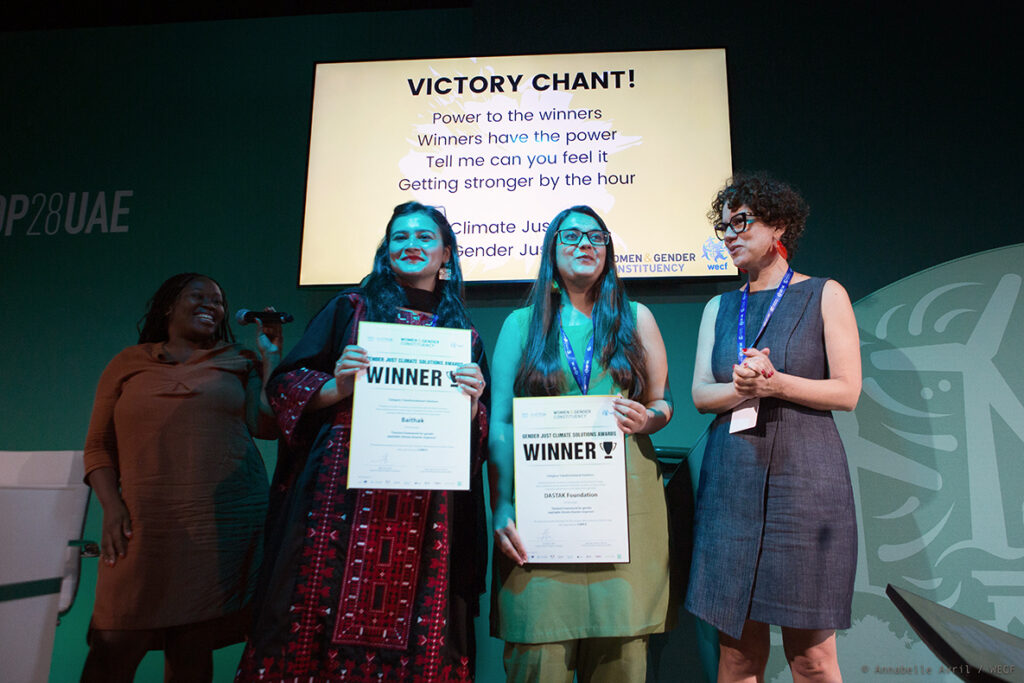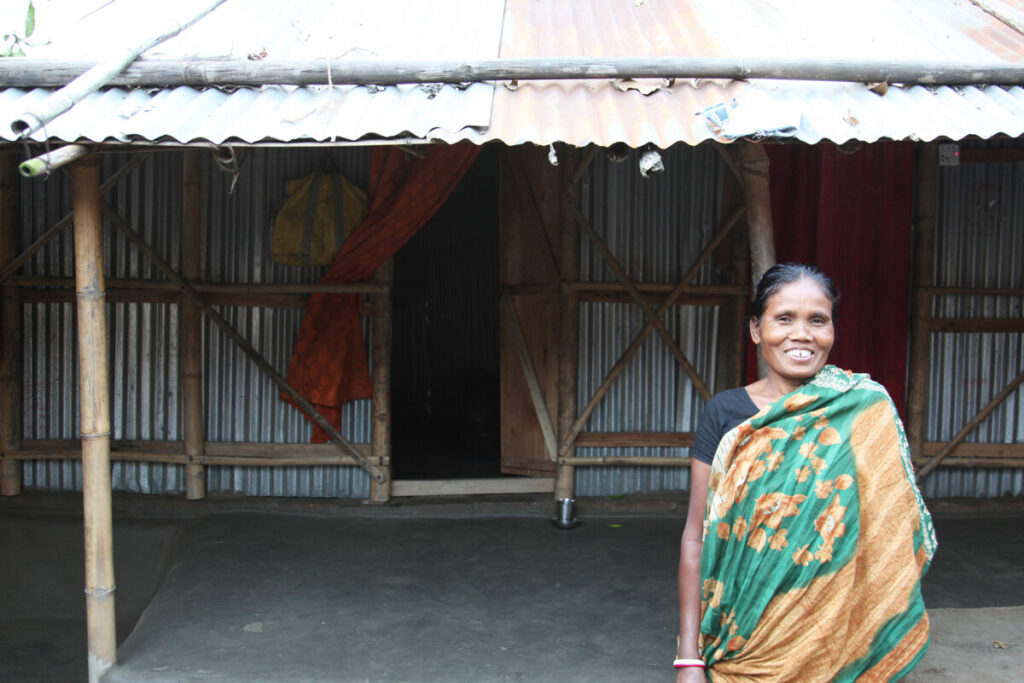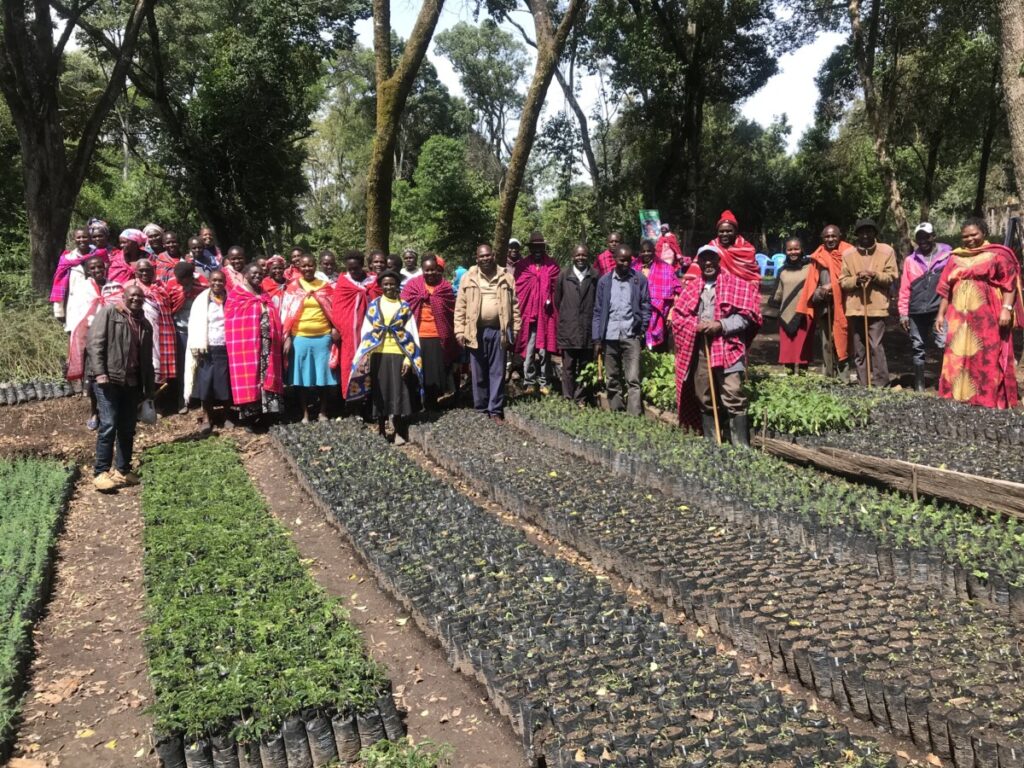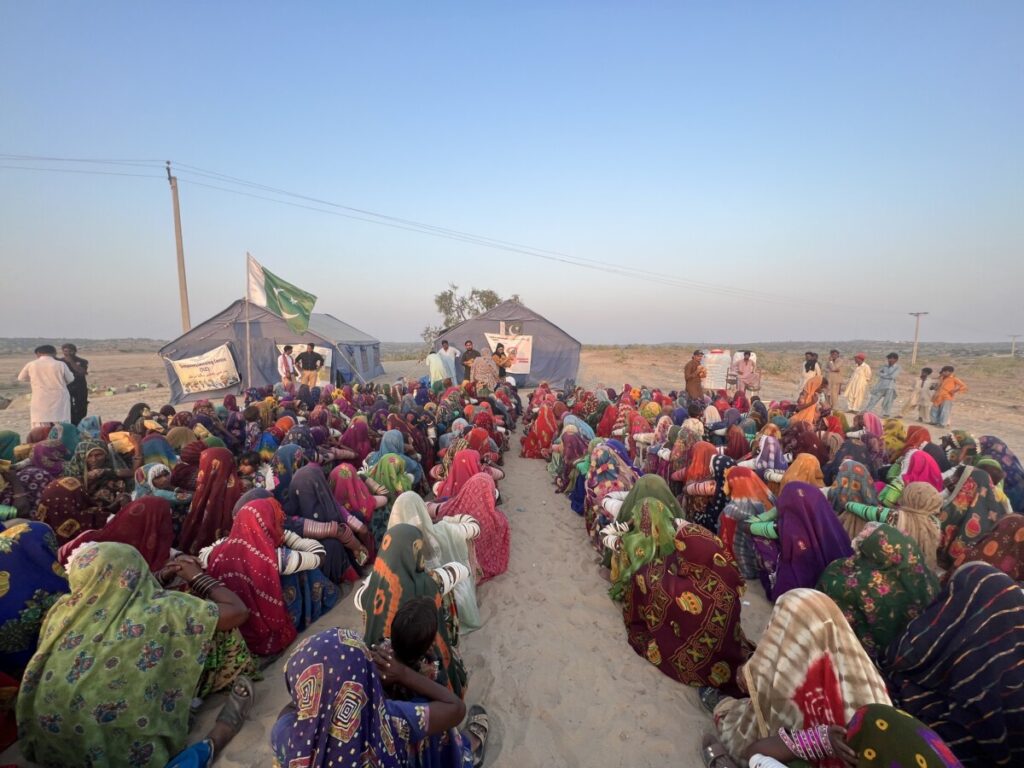Awardees in the Technical Solutions Category: AzuKo and Nirapod Bangladesh Songstha
Solution: Build for Safety: women contributing to climate-resilient housing in Bangladesh
Recipients: Jo Ashbridge (AzuKo) and Apu Roy (Nirapod Bangladesh Songstha)
Country: Bangladesh
In Dinajpur, Bangladesh, a construction training programme led by AzuKo and Nirapod Bangladesh Songstha (English: Safe Bangladesh Organisation) supports impoverished women with a comprehensive strategy. The programme contributes to enhancing community resilience to climate-induced disasters by promoting eco-friendly design and locally available materials. In addition, it aims to strengthen women’s skills in the male-dominated building sector. This multifaceted initiative challenges patriarchal norms and persisting gender inequalities by fostering democratic decision-making for women in their communities. AzuKo also supports women’s saving groups through low-interest loans and financial training.
Awardee in the Non-Technical Solutions Category: Paran Women Group
Solution: Bolstering Indigenous women’s knowledge and resilience to climate change impacts
Recipient: Naiyan Kiplagat (Paran Women Group)
Country: Kenya
Paran Women Group is a unique network of 64 Indigenous women civil society organisations that has engaged over 1,000 women and girls in climate mitigation and adaptation strategies aimed at improving water and food security for their communities, as well as reducing poverty, strengthening women leadership and promoting environmental governance through socio economic empowerment initiatives, advocacy, capacity building and training programmes for Indigenous women and youths. They have established kitchen gardens and are generating alternative sources of income through organic briquette making, native species tree planting, beadwork, medicinal herb collecting, and beekeeping. Their project helps reduce deforestation and CO2 emissions from firewood and reinforce climate resilience in severely affected areas of Kenya through conservation agriculture and rehabilitation of local seeds and crops. It promotes gender justice by supporting women’s leadership and decision-making power in Indigenous communities.
Related > Read more about Paran in this article in The Nation.
Awardees in the Transformational Solutions Category: Baithak and DASTAK Foundation
Solution: Framework for gender-equitable climate disaster response
Awardees: Ayesha Amin (Baithak – Challenging Taboos) and Hira Amjad (DASTAK Foundation)
Country: Pakistan
In their efforts to use gender-just approaches to respond to increasingly disastrous floods in Pakistan, Baithak – Challenging Taboos and DASTAK Foundation have developed a strategic and comprehensive framework tool offering guidelines for gender-equitable climate crisis responses. These responses are designed to meet the gender-specific needs of women and girls during climate crises and prioritise their health, well-being, and safety. Before its creation, extensive stakeholder engagement was conducted, including social listening sessions involving 30,000 menstruating women and girls, direct consultations with 5,000 individuals affected by floods, and collaboration with 40 grassroots organisations and experts.




